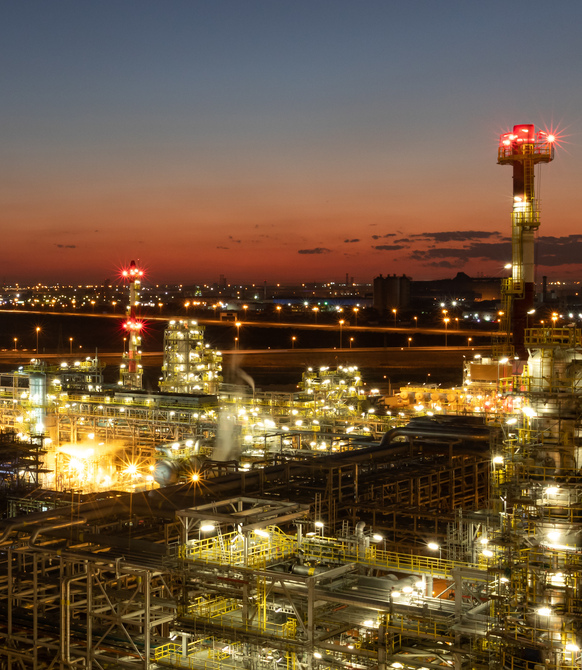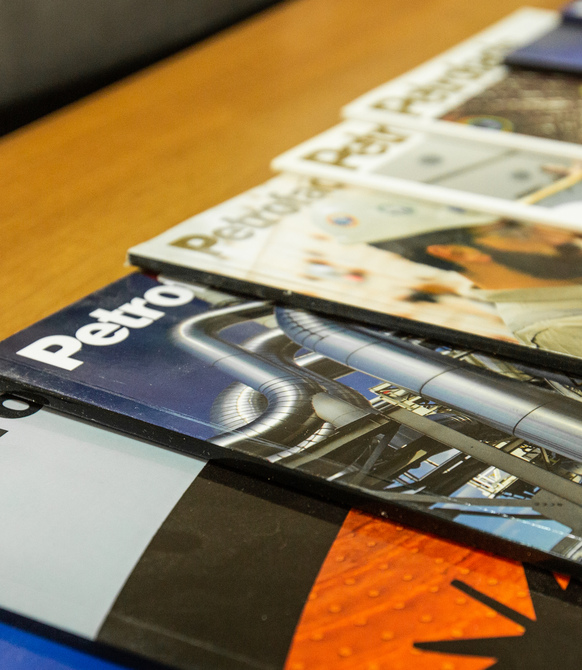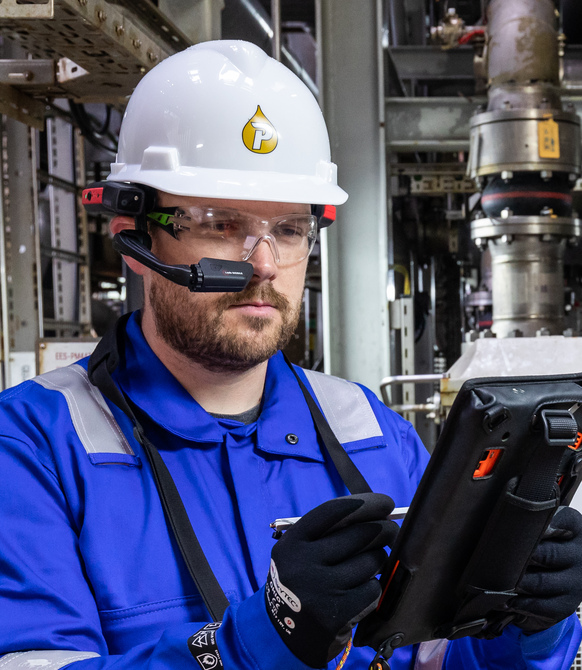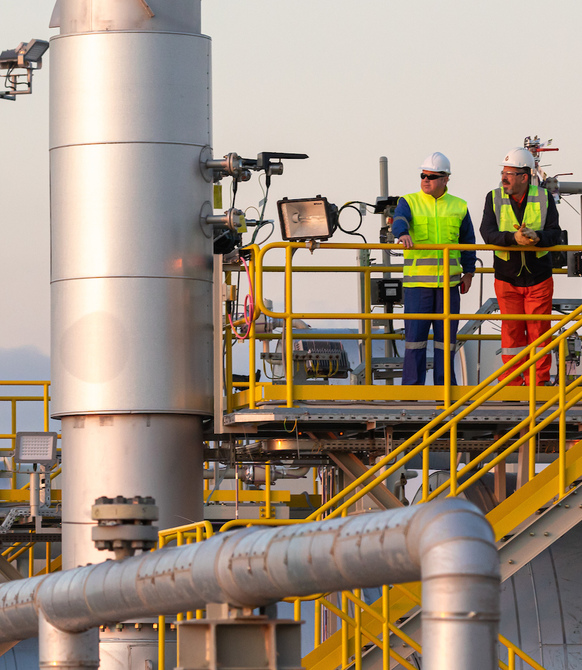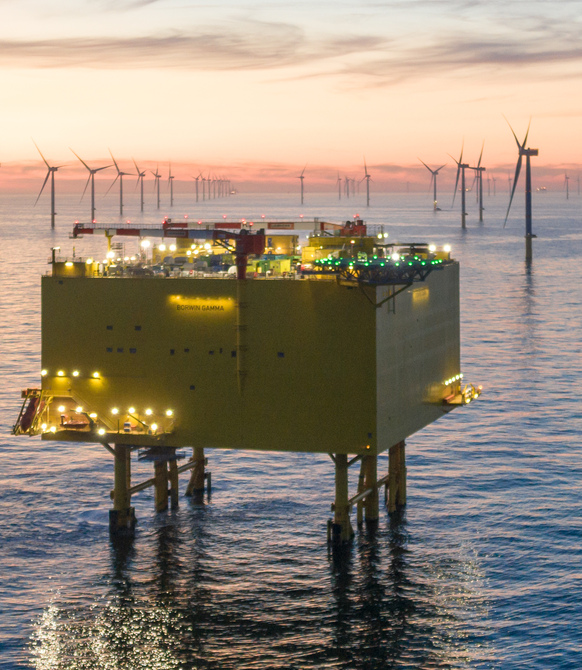25 April 2012
Petrofac progresses Mexico operations
Peter Leach, Senior VP – Americas, Integrated Energy Services (IES), explains the importance of Petrofac’s operations in Mexico and talks of the challenges ahead.
Mexico is a new geography for Petrofac. What were the greatest challenges that Petrofac has faced in Mexico?
This is the first time that Petrofac’s Production Solutions business has operated in the Americas. The greatest challenges have been coping with the language, the local geography, managing the different time zones and laying down the building blocks for expansion.
When we arrived in Mexico Production Solutions only had a limited presence in Houston. Establishing a framework and laying down an infrastructure was critical to our success. Of vital importance was the need to create a single organisational structure here with a clear back office function encompassing IT, HR, and a finance department. We achieved this by drawing upon the knowledge and experience of the talented staff who work in Petrofac offices around the world, for example OPO in Aberdeen provided us with our transition directories, IT and HR skills and support. In addition, being able to utilise the skills and expertise of our London and Woking offices proved invaluable. All in all, I believe that it’s been a good test of Petrofac’s ability to deploy its tools, systems, and its people in a region and a language that we have never operated in situ before.
The transition phase last year was very short. What were the biggest challenges for Petrofac Mexico during that particular phase?
When IES was awarded the contract in August last year, Harry Bockmeulen, Petrofac’s Mexico general director, was the only employee in the country. Four months later, with the transition complete, we had recruited more than 140 new staff.
The challenge, therefore, was to build a business in a compressed time frame that was capable of taking responsibility for the Magallanes and Santuario oil fields in a safe and effective manner.
The recruitment process, though, wasn’t straightforward. Often we transfer experienced staff from our customer. When Petrofac won the Duty Holder contract for the Sajaa gas plant in the UAE in December 2010, we acquired staff from BP Sharjah Ltd., and in Romania, Petrofac inherited nearly 1,000 staff from Petrom working on the Ticleni oil fields. In Mexico we had to recruit 140 staff from scratch. That was a very challenging process, but at Petrofac, we regard recruiting from local communities as one of our core strengths and it’s tremendously satisfying to know that we have brought in all the staff ourselves.
At Petrofac we are committed to hiring and developing local resources. Therefore, more than 70% of our staff are Mexican and half of those staff come from Tabasco. We always aim to recruit more workers from the local area, but in Mexico technical staff are difficult to source. Therefore, along with local recruitment, we cast the net wide and we’ve drawn the remaining workforce from a host of other South American countries, most notably Venezuela.
In the post-transition stage, our greatest challenge has been to engage with our staff so that they understand the way in which we work, our core values and our safety culture, which is one of the foundations of our business. They are making great progress and are very proud to be working for Petrofac.
In addition to recruiting staff, Petrofac Mexico has built relationships with several local suppliers. How impressed have you been by local talent?
We didn’t inherit any service providers from Petroleos Mexicanos (PEMEX). Therefore, we conducted a comprehensive in-country tendering and contracting exercise at a fairly early stage.
Mexico has an extremely well developed oilfield infrastructure and many world-class suppliers have entered the market place over the last 30 years. While multinational oilfield suppliers, Halliburton and Schlumberger, have established their own specialist Mexican branches, a host of Mexican companies have grown up around them. They have learned from the multinationals and have developed their performance and standards to compete with them on an even footing.
So there’s a highly skilled, competent and capable Mexican market that we are now utilising. We’ve awarded many of the larger contracts to Mexican companies, which is in line with our local delivery focus.
Can you describe your approach to safety?
As a senior manager, I encourage the people who work for me to be personally committed in regard to safety and our operations. At the same time I am responsible for my staff’s safety and wellbeing.
While I have been impressed with our culture of safety, there’s no such thing as a zero risk activity, so it is of vital importance that workers are aware of the potential hazards and ensure any remaining risks are managed effectively. As a company, we believe in our people. We know that they are our finest asset and in our Mexico operations, we are educating them that a task is only done well if it is done safely.
However, we don’t see any of this as a hurdle, but as a positive challenge that we will meet. In striving for a safe work place, we have been supported by PEMEX, a NOC which regards the health and safety of its workers as being of paramount importance.
Many of the wells included in the Production Enhancement Contract are situated close to rural farming communities. What is the key to developing a successful CSR programme?
We believe that engaging with the local community is a two-way communication and while we have signed a 25-year contract with PEMEX, we are also aware that we have begun a 25-year relationship with the community, and we not only want to live with them as good neighbours but invest in them, in every sense of the word.
Therefore, we have already begun to implement a sustainable development programme in the local communities. Both Petrofac and PEMEX recognise the importance of the relationships that we forge in the community. Those links are an essential element of our operations in Mexico, and will have a direct impact on our long term success.
PEMEX realised the importance of community engagement a number of years ago. And given that PEMEX’s oil fields are located in inhabited rural communities, Petrofac Mexico has formed an active sustainable development organisation which seeks, not only to foster good relationships with local populations, but to create lifestyle, education, health, and employment opportunities through a series of initiatives that are currently under development.
What do you think the future holds for Petrofac in Mexico?
We are very excited about the future and discussions with PEMEX in regard to further Production Enhancement Contracts in Mexico are ongoing. And we have highlighted a number of opportunities through a structured bidding process that we are pursuing. Currently there is a second round of Production Enhancement Contracts in progress for six fields in central and northern Mexico, four of which are onshore and two offshore.
Our current contract with PEMEX will keep us in the country for 25 years. It has longevity and materiality. We’ve already recruited more than 140 people and we hope to further increase our staff base in the near future.
I think that there are tremendous opportunities for Petrofac to grow its Mexico business. PEMEX has publicly stated that it will expand the bidding process if opening up the energy sector to private companies proves to be successful.
What is particularly exciting is that PEMEX has a much larger project portfolio, which currently remains outside of the bidding process.
I believe that as our relationship with PEMEX develops and matures, it will actively seek out opportunities to work with us. Already for example, there are two or three opportunities, outside of the round, which we are discussing with them.
Certainly, there’s a great level of interest to sample the full range of Petrofac’s capability and it's key therefore that we demonstrate excellence in all aspects of our operations.


